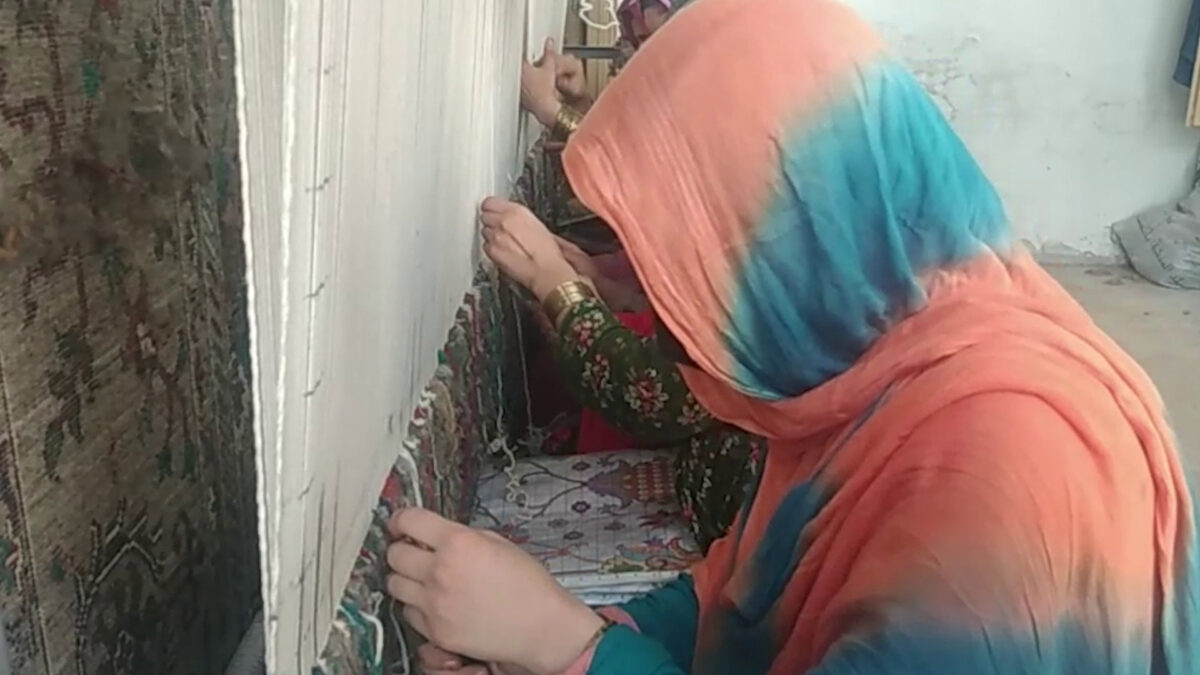In recent months, the carpet weaving industry in Nangarhar province in the east of the country has experienced remarkable growth, leading to improved business opportunities for many weavers. Notably, a local business in the province has played a significant role in this development, employing over 1,500 women as carpet weavers.
An Amu reporter recently visited the carpet weaving factory in Nangarhar, where Safiya, a worker, shared her inspiring journey. Safiya has been weaving carpets at the factory for the past year, skillfully providing for her family’s expenses through her craft.
“I started as a learner, but now I can fully support my family with this work. It’s empowering to be able to contribute financially and create employment opportunities for other women who prefer to work from home,” said Safiya with a smile.
Many of the workers at this factory are women and girls who, unfortunately, were deprived of further education in recent years. However, their involvement in carpet weaving is transforming their lives by enabling them to fund education for other family members.

Gul Mina, another worker at the factory, expressed her enthusiasm about the prospect of contributing to her family’s financial well-being through her craft.
The officials overseeing the household work revealed that approximately 1,500 women in Nangarhar are involved in carpet weaving, earning 12,000 afghanis per month. These women undergo a three-month training period to learn the art of carpet weaving before they begin working from home, producing beautiful carpets for the factory.
Zarghona, the factory’s manager, emphasized the positive impact of this initiative on the lives of the weavers and their families.
Moreover, Mohammad Tahir, the head of the Dara-e-Noor Brothers Carpet Weaving Company, shared his joy in witnessing the growth of the industry, not only economically but also in providing vocational opportunities for women.
Officials at the factory reported a significant surge in business over the past few months, with a noticeable increase in the demand for Afghanistan’s carpets. This positive trend highlights the value of supporting local businesses and empowering women in Afghanistan.




